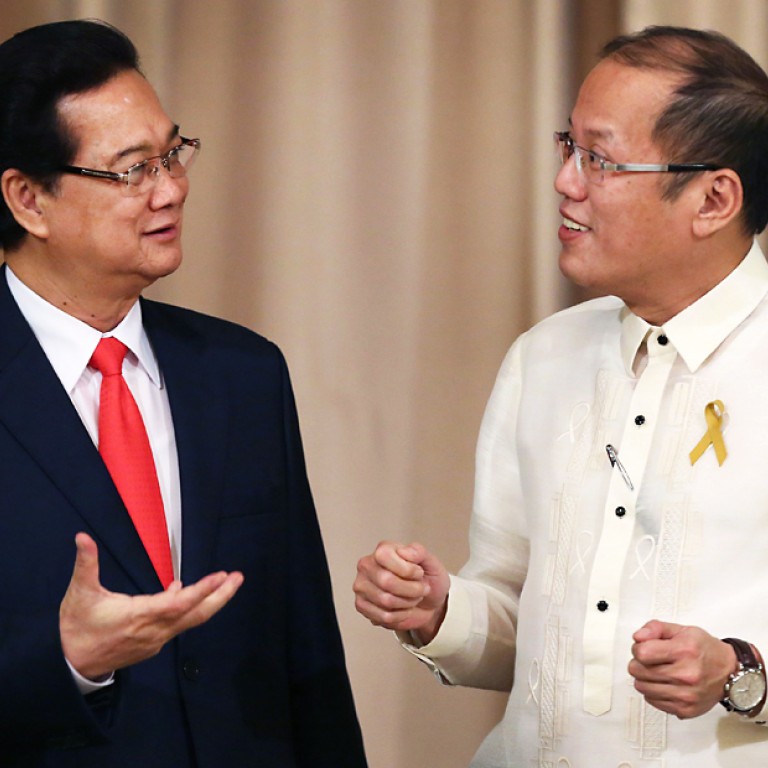
Vietnam and Philippines jointly denounce China's maritime moves
In a rare show of unity, Hanoi and Manila denounce Beijing's maritime moves, vowing to oppose infringement of territorial waters
Vietnam and the Philippines were determined to oppose Chinese infringement of their territorial waters, Vietnamese Prime Minister Nguyen Tan Dung said yesterday, calling on the world to condemn China's actions in a rare public show of unity bound to infuriate Beijing.
China is embroiled in disputes with Vietnam, the Philippines and others over boundaries in the potentially energy-rich South China Sea and has said it seeks to resolve differences in one-on-one talks with the countries involved.
Beijing and Tokyo are also at loggerheads over disputed islands in the East China Sea.
"The president and I shared the deep concerns over the current extremely dangerous situation caused by China's many actions that violate international law," Dung said in a statement after talks with Philippine President Benigno Aquino during a two-day visit to Manila.
"In particular, China's illegal placement of the oil rig and deployment of vessels to protect the rig deep into Vietnam's continental shelf and exclusive economic zone have seriously threatened peace, stability, maritime security and safety, and freedom of navigation."
Anti-China violence flared in Vietnam last week after Chinese state oil company CNOOC deployed an oil rig 240km off the coast of Vietnam in waters also claimed by Hanoi. The rig was towed there just days after US President Barack Obama left the region.
The move was the latest in a series of confrontations between China and some of its neighbours. Washington has responded with sharpened rhetoric towards Beijing, describing a pattern of "provocative" actions by China.
"The two sides are determined to oppose China's violations and called on countries and the international community to continue strongly condemning China and demanding China immediately end its violations," Dung said.
Carl Thayer, an expert on Vietnam at the Australian Defence Force Academy in Canberra, said Vietnam had to play what cards it had as it was clear the Association of Southeast Asian Nations (Asean) was not going to stand up to China.
"It's unprecedented for Vietnam to join a US ally and appeal directly for international support," he said. "It is an admission that Asean is not going to go to the mat on this one, so Vietnam has got to play some of the only options it has got left."
Dung's harsh words were similar to those he used at a summit of the 10-nation Asean in Myanmar this month in which he also urged the international community to protest against China's moves. Asean issued a summit communiqué that did not criticise China.
The Philippines has also faced increasingly tense tussles with China for control of islets and reefs in the sea over recent years.
In one high-profile incident in 2012, the Philippines lost control of a rich fishing ground 220km off its main island after initially deploying its largest naval ship against Chinese vessels but then withdrawing.
The Philippines lodged an appeal in March with a United Nations tribunal to rule that China's claims to most of the sea are illegal. China has refused to participate in the proceedings.
Dung and Aquino said their disputes with China had drawn their countries closer in defence and other spheres.

